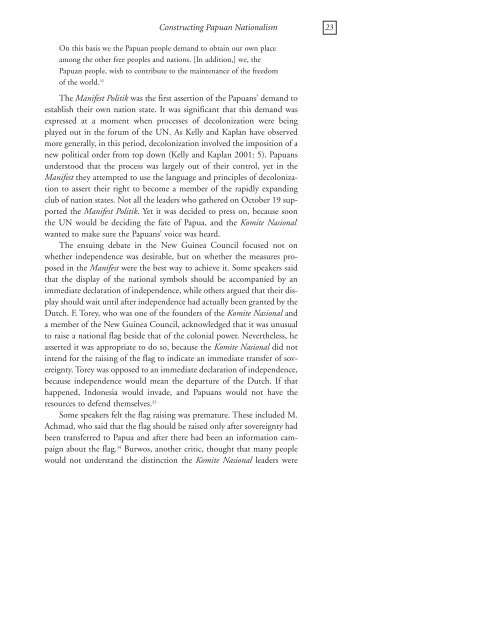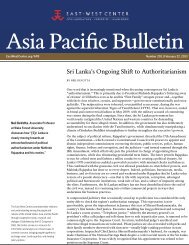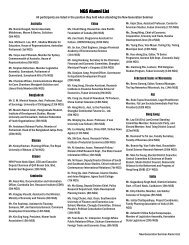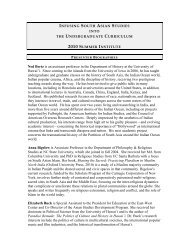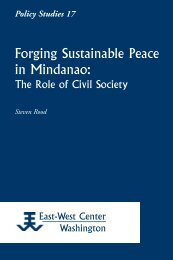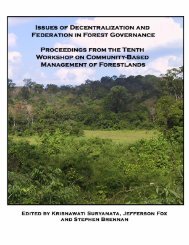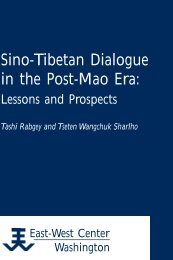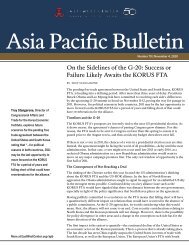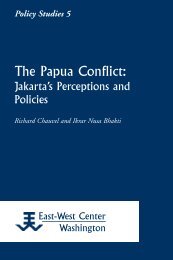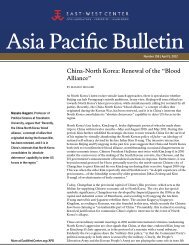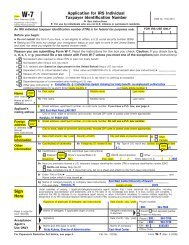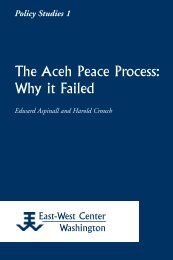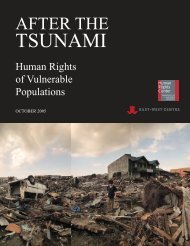Constructing Papuan Nationalism: History, Ethnicity ... - ScholarSpace
Constructing Papuan Nationalism: History, Ethnicity ... - ScholarSpace
Constructing Papuan Nationalism: History, Ethnicity ... - ScholarSpace
- No tags were found...
You also want an ePaper? Increase the reach of your titles
YUMPU automatically turns print PDFs into web optimized ePapers that Google loves.
<strong>Constructing</strong> <strong>Papuan</strong> <strong>Nationalism</strong> 23On this basis we the <strong>Papuan</strong> people demand to obtain our own placeamong the other free peoples and nations. [In addition,] we, the<strong>Papuan</strong> people, wish to contribute to the maintenance of the freedomof the world. 32The Manifest Politik was the first assertion of the <strong>Papuan</strong>s’ demand toestablish their own nation state. It was significant that this demand wasexpressed at a moment when processes of decolonization were beingplayed out in the forum of the UN. As Kelly and Kaplan have observedmore generally, in this period, decolonization involved the imposition of anew political order from top down (Kelly and Kaplan 2001: 5). <strong>Papuan</strong>sunderstood that the process was largely out of their control, yet in theManifest they attempted to use the language and principles of decolonizationto assert their right to become a member of the rapidly expandingclub of nation states. Not all the leaders who gathered on October 19 supportedthe Manifest Politik. Yet it was decided to press on, because soonthe UN would be deciding the fate of Papua, and the Komite Nasionalwanted to make sure the <strong>Papuan</strong>s’ voice was heard.The ensuing debate in the New Guinea Council focused not onwhether independence was desirable, but on whether the measures proposedin the Manifest were the best way to achieve it. Some speakers saidthat the display of the national symbols should be accompanied by animmediate declaration of independence, while others argued that their displayshould wait until after independence had actually been granted by theDutch. F. Torey, who was one of the founders of the Komite Nasional anda member of the New Guinea Council, acknowledged that it was unusualto raise a national flag beside that of the colonial power. Nevertheless, heasserted it was appropriate to do so, because the Komite Nasional did notintend for the raising of the flag to indicate an immediate transfer of sovereignty.Torey was opposed to an immediate declaration of independence,because independence would mean the departure of the Dutch. If thathappened, Indonesia would invade, and <strong>Papuan</strong>s would not have theresources to defend themselves. 33Some speakers felt the flag raising was premature. These included M.Achmad, who said that the flag should be raised only after sovereignty hadbeen transferred to Papua and after there had been an information campaignabout the flag. 34 Burwos, another critic, thought that many peoplewould not understand the distinction the Komite Nasional leaders were


